Want to be part of an open-space event where topics like these are explored by professionals with ADHD, and those who work with them? Early-bird registration is open for the ADHD Open Space on January 20, 2024 in Madison WI at Serenity Labs.
transcript follows
The good news: we’d finally gotten a really good mattress, and there was a much better chance that my partner and I could improve our sleep.
The bad news: that first night on the new mattress, my brain did not want me to go to sleep. I lay there for hours into the night, trying to calm my racing thoughts, adjust my body into some comfortable position, even grabbed my old pillow.
Nothing worked well. I finally drifted off a bit after midnight, according to my sleep monitor:
Five hours of sleep. That did not bode well for the rest of the day, which was full of administrivia in the morning and meetings in the afternoon.
I knew from experience that taking my adderall was not going to help — in fact, it would likely make the day even worse, because it would be more difficult to relax in the liminal spaces between tasks and meetings.
I’d mentioned this to my doctor a while back, telling him that taking adderall on days when I’d had little sleep had been actually counterproductive.
He had some great advice, thanks to some of the best medical training available on the planet:
Don’t take it, then.
Thanks, Doc. But I still had to deal with a full day of work, and one thing about knowing I have ADHD is that it makes my issues with executive functioning that much more ominous, noticeable, and almost inevitable.
Don’t get distracted. Focus. And don’t forget that thing. What thing? Was it that thing over there? No, it was…damn, maybe I wrote it down…nope, not in this notebook. In Obsidian? Let me check the daily log…Oh, but there’s that other thing you need to do. Better get on that, it’ll only take a second, just open up a browser window — oh, there’s some comments on my recent post, I should reply quickly so people know I’m engaged — wait, wasn’t I going to be focusing on…something?
Yeah, I didn’t want to have that kind of day.
So instead, I went to my bullet journal log, and wrote out some rules for the day.
The big thing is expectations.
My boss is on vacation, but if she hadn’t been, I would have sent her an email, letting her know that I was going to be operating at low capacity.
I’m really fortunate; I work in a place where the leadership and staff are well versed in neurodivergence, so she understands what that means. So do my coworkers, and if I’d had to reschedule the meetings or postpone the deliverables they were expecting, they would have understood. I’ve done the same for them; we’re all very lucky to be where we are.
This was not likely to be a day when I made huge progress on projects, impressed donors, wrote brilliant articles; the lack of sleep was not something that could be “compensated” for, no matter what Red Bull tells you.
What’s harder is managing my own expectations. Raised with a Judeo Christian work ethic, steeped in Marine Corps gung-ho sauce, and then marinated for a few decades in entrepreneurial hustle culture, I struggle constantly against the personal expectation that if I’m not operating at 100% efficiency all the time I am stealing from my job, my family, or my future.
Sometimes all three. I know it’s false — what I’m really doing is stealing from my now by wasting attention on comparisons the non-existent past or the unrealistic future.
Pre-ADHD diagnosis, I would try to “power through.” Or I’d just give up and sit on the couch bingeing TV and junk food.
Now that I understand better what’s going on with my brain, though, I can find a middle way. A compassionate, realistic idea around what would be best for both me and my work for the day.
Not only that, with a little pre-visualization, I could leverage that ADHD into some useful directions.
My framework for a bad brain day.
On a day like this, there’s an overarching premise:
Everything will be downshifted, except where hyperfocus is useful.
Most people — myself included — have a sort of “minimum viable task list”both at work and at home. Some report absolutely has to be filed, some meeting can’t be rescheduled, kids have to be fed even though you just fed them yesterday — the essentials. The non-negotiables.
On a bad brain day, I’m going to figure out early on what the non-negotiables are, and do one of two things with each:
do them as fast and immediately as possible, knowing that as the day goes on my executive function spoons are going to be pretty much gone, or
set things up so that they are as easy as possible to do when they need to be done.
An example of the latter would be taking part in my art group (the “Inebriated Illuminators”), which happens every Wednesday on zoom. Getting back into art for pleasure is important to me; but at the same time, by 5:30pm I’m not going to want to do anything but couch-potato.
I removed as many hurdles as I could for later-day me:
I chose a project that didn’t take a lot of brainpower (painting a dice tower).
I laid out my tools (paints and brushes) so I wouldn’t have to find them later.
I set aside a bottle of Modelo Negra and a piece of lime right in the front of the fridge, something that would feel instantly gratifying (and satisfy the “inebriated” part of the group’s intent).
The result? I was dead tired by 5:30pm, but I grabbed the beer, went down to my workshop, and after an hour had made some nice progress:
That’s because I had set things up to get deeply in to the zone — allowing my natural inclination to hyperfocus take me away. Better yet, it means at the end of the day I have a clear list of this is what I accomplished — which helps alleviate that I didn’t get anything done today, my brain is broken, everything is hopeless feeling that often accompanies low-executive-function days.
I disagree with the “ADHD is a superpower crowd, because I still feel like a fish in the forest most of the time — but there are some cases where it really does come in handy.
The rest of the framework.
With that prime directive in place, I made a list of other things that need to rule a bad brain day.
Rely heavily on timers. My time-blindness is going to be worse than usual. Setting timers at the beginning of every new phase will help keep me on track.
Use lists as the focus. That minimum viable task list needs to be the main thing, but I could add in things that I knew I would enjoy or that would be helpful. And then just keep coming back to the list.
Choose clear tasks with an obvious stop point. I need to be realistic about the tasks, as well. If one of them is “plan out the charity gala for September”, that is way too amorphous. Even “start to plan…” was too broad. I need to narrow it down to a Look, I did the thing! level — something that also might leverage my distractibility. Spend 45 minutes looking at event planning templates for Notion and make a list of five to choose from tomorrow. That’s doable, and it makes me feel like I’ve accomplished something.
No financial/job/relationship/hobbies-that-cost-money decisions allowed. This is a big one. Part of connecting the dots for my ADHD diagnosis is looking back over my life and seeing the points where my decisions were made from a place of impulse, fear, or desire without much rational examination of the consequences. I have always been prone to it; now I know why.When I have those urges on a bad brain day, instead of acting on them, they go on the list. That notebook that I carry around; it has questions and ideas written down to be reviewed by future-me (who theoretically has a more objective view). That makes present-me grumble a bit (but I want it NOW) but usually avoids actual actions taking place.
I purchase fewer online courses, at the very least.Have a recharge point This is another part of the list, something that I add on as non-negotiable but that really is more about making sure I make it through the full day. In this case, it’s lunch hour:12pm eat relaxing lunch12:20pm put on headphones, take a 20-minute guided meditation power nap12:40pm Do a 20-minute HIIT or weight-training workout (already picked out on Apple Fitness)
Potentially I’ll add a cold shower to the end of that list, if I have time (my lunch hours aren’t all that regimented). The goal is that by the end of that recharge routine, I get to wake up and be ready for my afternoon meetings.Gracefully decline as the day goes on. Going back to the original idea of managing expectations, I don’t make any evening plans. I tell my partner that all I’m good for is basically shared couch potato time — which she recognizes as also meaning tonight is not the night for talking about deep stuff like relationship and finances. She also knows to expect me to be a little more absent-minded by the time we are both in the same space, perhaps not as attentive or gracious as usual.
Everybody has a bad day sometimes; ideally we all make compassionate allowances for each other when that happens. When you have ADHD, you need to make sure that the people in your life — both work and personal, understand that some days are worse than others. It’s not a hard concept; arthritis and allergies have “flare-ups” that are normalized in society, and nobody’s going to expect you to take the stairs when your sciatica is acting up.
That being said, if you’re like me, the hardest person to convince will be yourself. Be compassionate; there’s no cure for lack of sleep except sleep, so slow your roll, take pleasure in the little victories, and if you manage to make it through your No-Good Terrible Awful Bad Brain Day without damaging your status quo — maybe even getting a few steps further towards your hopes and dreams — count it as a major victory, because a lot of us didn’t.
And then go get some sleep.





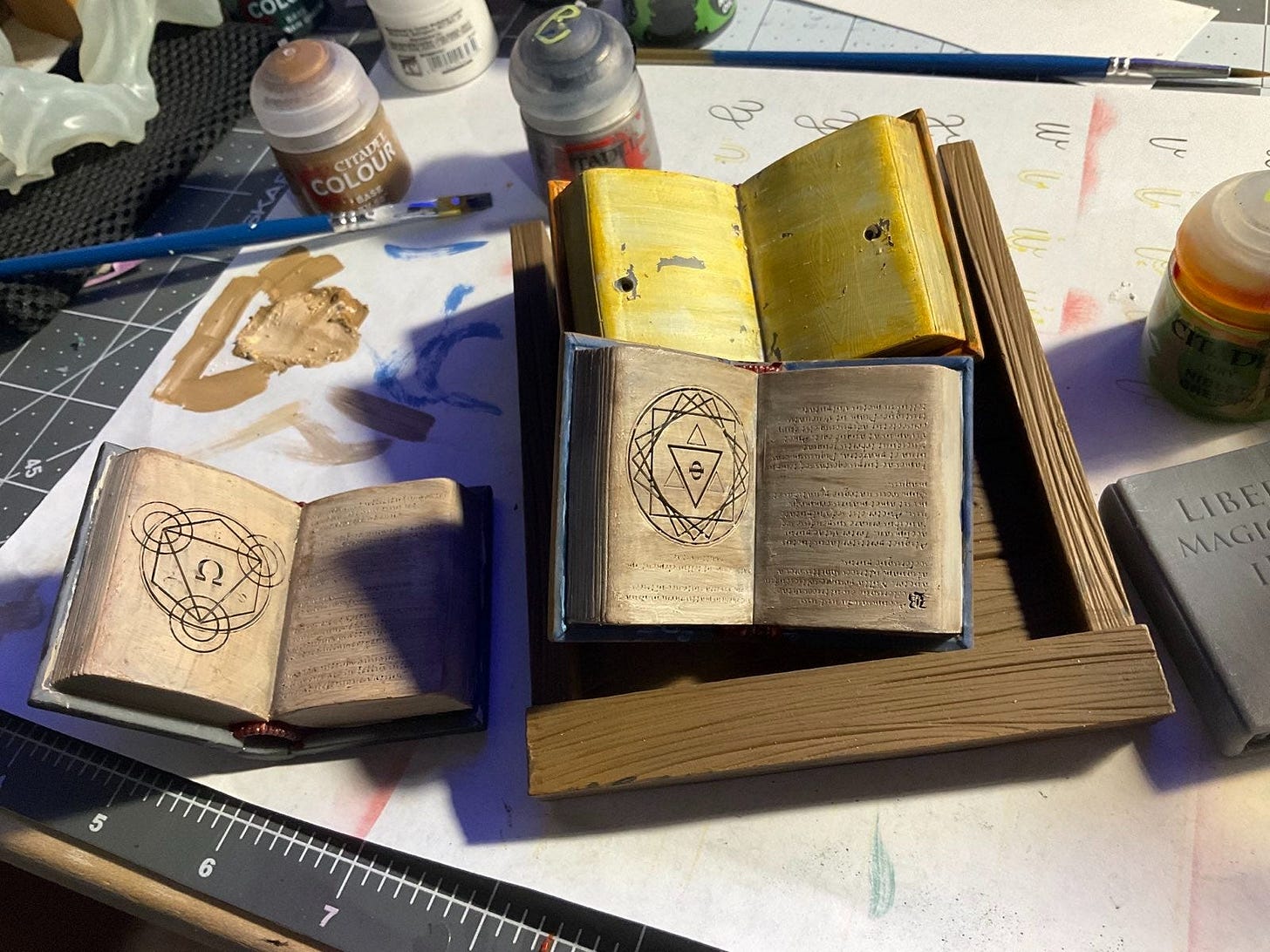

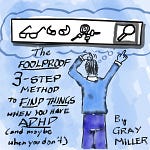




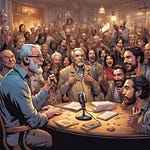
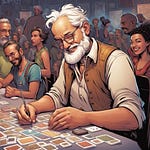
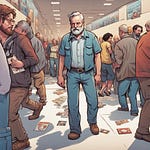
Share this post